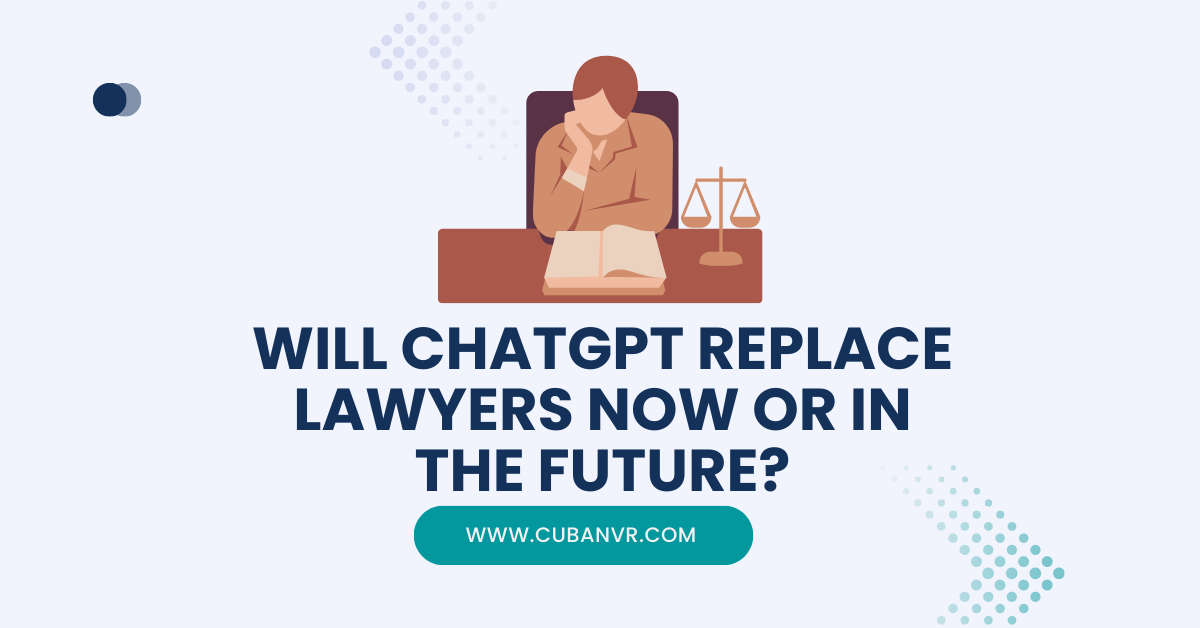Will ChatGPT replace paralegals, and will AI replace lawyers? These are common questions of the day since the AI wave has become more frequent, and spreading across different professions.
The rise of artificial intelligence (AI) has ushered in a new era of automation and innovation, revolutionizing industries across the board. One area that has piqued both curiosity and concern is the potential impact of AI, particularly advanced language models like ChatGPT, on the field of law. The question that looms large is, “Will ChatGPT replace lawyers now or in the future?” In this blog post, we delve into the complexities of this topic, examining the current capabilities of AI in the legal realm, its potential benefits, and the unique strengths that human lawyers bring to the table.
What is AI in the legal landscape?
AI, including sophisticated language models like ChatGPT, has demonstrated remarkable proficiency in tasks such as document analysis, contract review, legal research, and even generating basic legal documents. These capabilities have fueled speculation about the potential for AI to replace certain aspects of legal work. While AI can process and analyze vast amounts of data quickly, it’s important to recognize that legal practice encompasses far more than data interpretation.
The benefits of AI in law and legal practices
1. Efficiency: AI can significantly expedite tasks that are time-consuming for human lawyers, enhancing efficiency in legal research and document review.
2. Accuracy: AI can perform repetitive tasks with a high degree of accuracy, reducing the risk of human error in tasks like contract analysis.
3. Data Processing: AI’s ability to analyze large volumes of data can assist lawyers in identifying patterns and trends that might not be easily apparent.
4. Cost Savings: The use of AI tools can potentially lead to reduced costs for clients by minimizing billable hours spent on routine tasks.
The unique strengths of human lawyers
1. Legal Judgment and Interpretation: Legal practice often requires nuanced judgment and interpretation of complex statutes, regulations, and case law, which AI may struggle to fully comprehend.
2. Emotional Intelligence: Lawyers frequently navigate sensitive and emotionally charged situations, requiring empathy and interpersonal skills that AI lacks.
3. Complex Problem Solving: Many legal matters involve intricate problem-solving and strategic decision-making, areas where human expertise shines.
4. Ethical Considerations: The legal field often demands ethical reasoning and the application of moral principles, which are deeply rooted in human understanding.
5. Advocacy and Negotiation: The art of advocacy, negotiation, and courtroom representation draws on human intuition and persuasion that AI cannot replicate.
See also: 10 Lesser Known Facts About ChatGPT That Will Blow Your Mind
A Synergistic Future
The question of whether ChatGPT will replace lawyers is a complex one. While AI can undoubtedly streamline certain legal tasks, it is unlikely to replace the multifaceted role that human lawyers play in providing comprehensive legal counsel. The future of law may well involve a symbiotic relationship between AI and human lawyers, where AI augments their capabilities rather than supplants them. Lawyers can leverage AI as a powerful tool to enhance efficiency, accuracy, and data-driven insights while focusing their expertise on critical thinking, client relationships, and the application of legal judgment.
Conclusion
AI, including ChatGPT, has the potential to revolutionize the legal profession by optimizing various aspects of legal practice. While it may redefine certain tasks, it is unlikely to replace the nuanced expertise, emotional intelligence, and ethical considerations that human lawyers bring to their work. The collaboration between AI and human lawyers presents an exciting prospect for a future where technology empowers legal professionals to deliver even greater value to their clients. As we navigate this evolving landscape, it is clear that while AI is a formidable tool, the art of practicing law remains a distinctly human endeavor.
